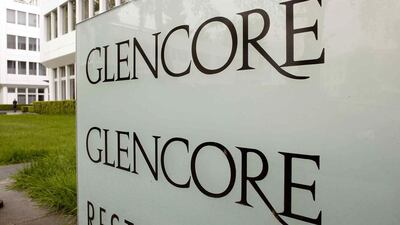Glencore, the miner and commodity trader run by the billionaire Ivan Glasenberg, reported a 66 per cent drop in first-half profit on lower raw-materials prices.
Net income excluding some items in the six months to June 30 fell to uS$300 million from a year earlier, the Switzerland-based company said on Wednesday. That compares with a $318m average estimate of 16 analysts compiled by Vuma Consensus and posted to the mining company’s website. Net debt declined to $23.6 billion.
Last year’s collapse in commodities and Glencore shares forced the firm to roll out a rescue strategy that included scrapping its dividend, selling $2.5bn of stock, disposing of assets and slashing spending. The shares have doubled this year as Glasenberg checked off targets on the plan designed to almost halve borrowings to as low as $16.5bn by year-end. Glencore earlier today announced a $670m deal to sell future output from an Australian gold and copper mine.
“The mining sector is still in divestment mode, it’s still trying to get balance sheets in order,” said Colin Hamilton, an analyst with Macquarie Group in London. “They are doing much more work to repair their balance sheet, I would say, than many of their peers.”
Glencore closed up 3 per cent at 189.8 pence in London on Tuesday, giving the company a market value of about $36bn. It is this year’s third-best performer in the United Kingdom’s benchmark stock index.
The company did not pay a dividend after scrapping the payout last year. The chief financial officer Steve Kalmin said today that it is “pretty likely” it will return to a full-year dividend. The company paid an interim dividend of 6 cents a share last August.
business@thenational.ae
Follow The National's Business section on Twitter

